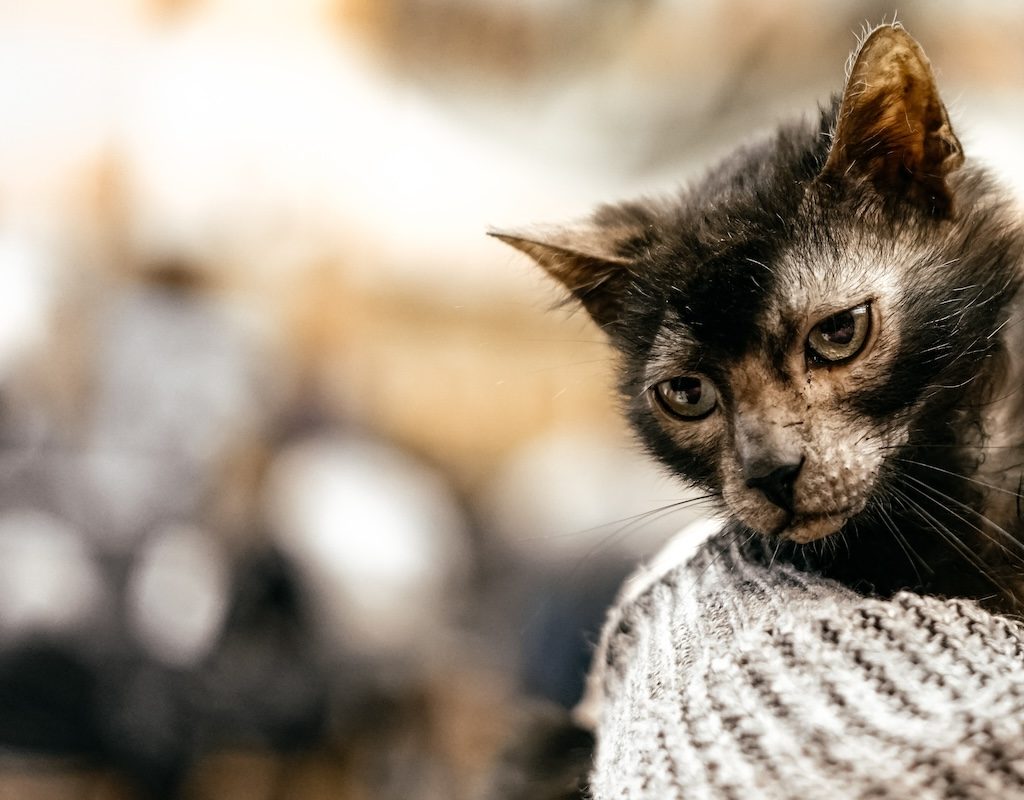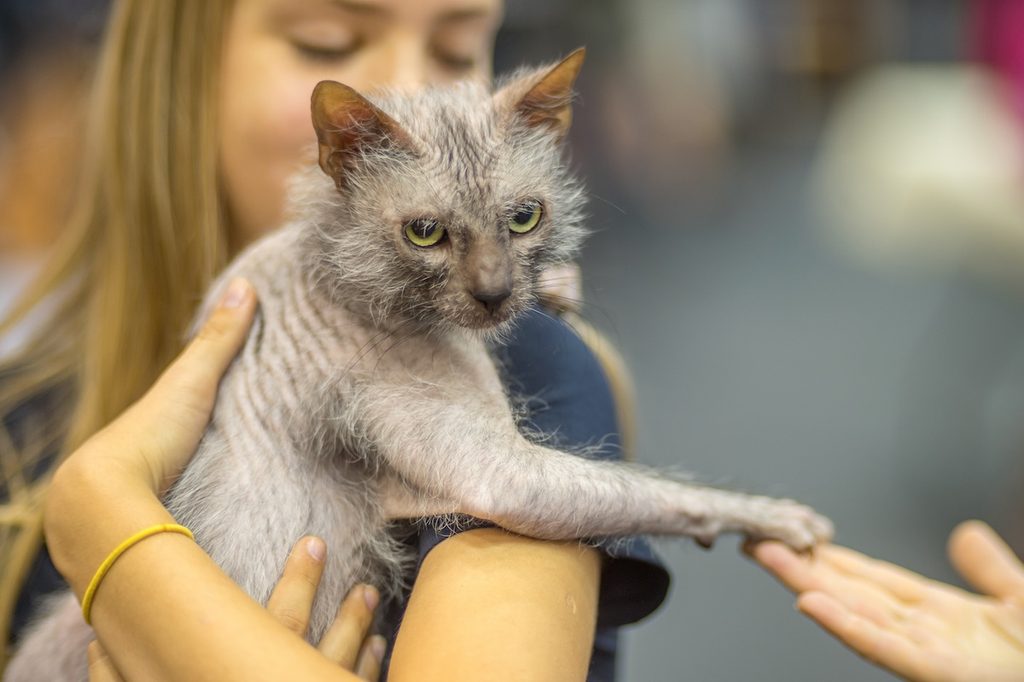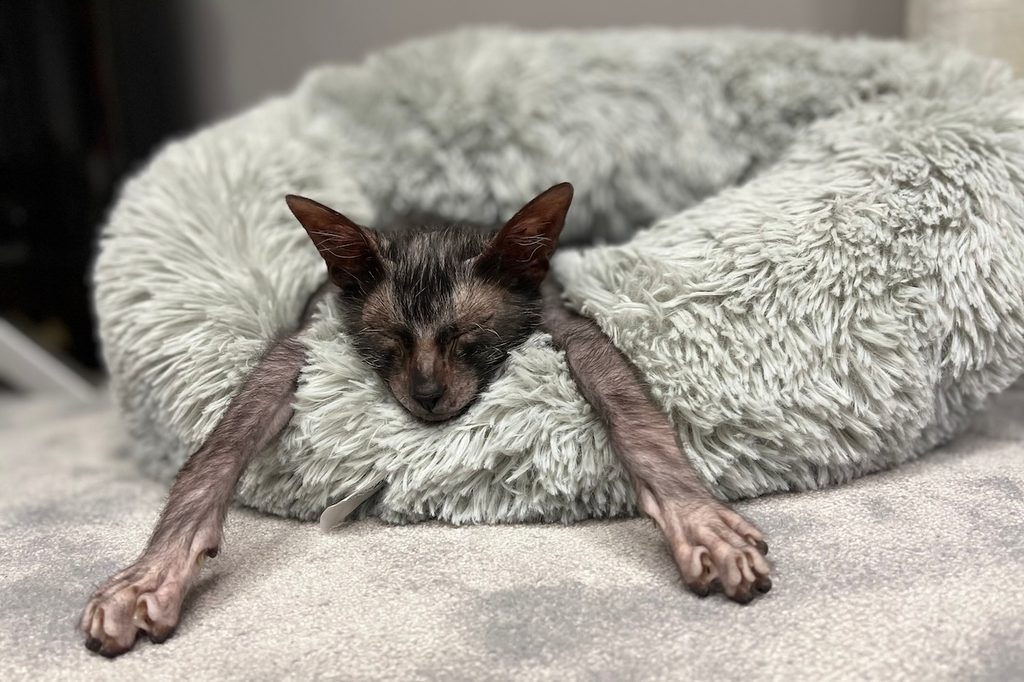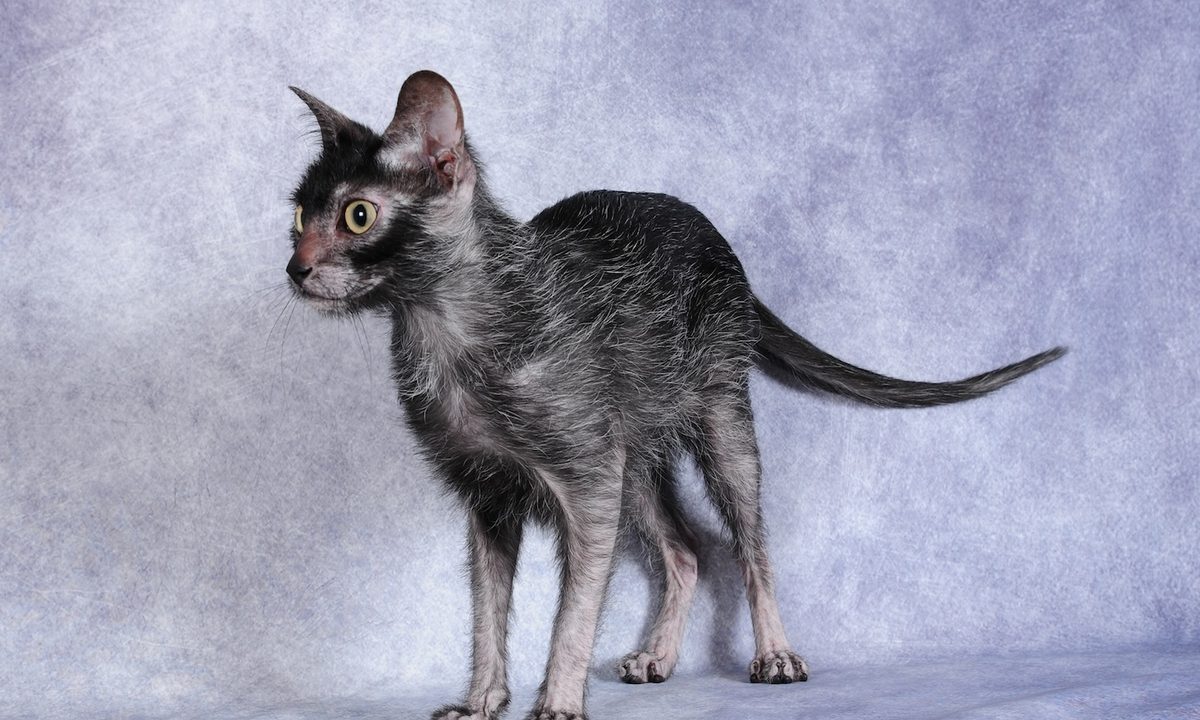You may think you know cats, but until you’ve seen the werewolf cat, you haven’t encountered them all. This feisty kitty certainly lives up to its name and reputation. The lykoi (or wolf cat in Greek) doesn’t look like your average mouser. They have a distinct appearance and personality, even though they clock in about 10 pounds, just like a normal kitty. Hard to find and not suitable for novice pet owners, a lykoi will make an amazing pet for the right parent. Before bringing one home, here’s what you should know about this rare yet engaging animal.
How to care for a lykoi

You’ll recognize a werewolf cat when you see one — the hairless vibe is nothing if not distinctive. It actually comes from a condition called hypotrichosis, which causes fur to grow in patches. Because of this, these kitties have very soft bodies that you will love petting. In terms of hair color, this little beastie rocks a roan coat, meaning you’ll spot both white and colored hairs in there.
Of course, the special hair requires a little extra TLC. Start with their diet, which must include high-quality ingredients and lots of nutrients. Consistent baths will also help keep the fur healthy and get oil down to a manageable amount. Be forewarned, occasionally, you’ll find your cat “wolfing out” — which means dropping all their fur and becoming a naked cat for a while before it all grows back.
What do these cats eat

As kittens, you’ll start them on special food specifically designed for their life stage. At that age, they can eat freely. Once they hit adulthood, move them to two small meals a day of normal cat food. You should talk to your vet about exactly how much each meal should include, both for baby and grown felines. The cat doctor will take into account their size, breed, and activity level to determine their daily caloric intake.
Lastly, many furry friends want something to do during dinner, like how you might eat in front of the TV sometimes. Introduce food puzzle toys or a lick mat. For a buddy who eats too quickly, look into a slow feeder.
Behavior and training tips for the werewolf cat

Every cat has a unique personality and you can only tell so much from understanding their breed. However, this pretty kitty might surprise you if you’ve only ever had domestic shorthairs in the past.
Personality
The lykoi’s ancestors were feral and they still maintain some of that chaotic energy today. Be prepared to get stalked and pounced on from time to time. We don’t recommend having small pets in the home with a werewolf cat, as their prey drive is very strong. Don’t let that discourage you, though! These beasts grow to love their owners.
Behavior
The limited fur makes them prone to cold, and so you should expect to get a lap cat out of the deal when you adopt a lykoi. Sweaters also help, especially during the winter season. You definitely want to keep this cat mentally stimulated, as this breed won’t be content to just lie in the sun all day.
Training
Because they enjoy extra interaction, the lykoi will love to learn a few tricks. Grab a couple of treats and teach your werewolf cat to come when called or meow at the moon (tricky, but possible for some kitties). Using a harness with them can be a challenge, since they don’t have a lot of fur. A catio or similarly enclosed outdoor space will help stimulate their brain.
Playtime
You’ll want to invest in a good number of toys and enjoy watching your pet bat around fake mice and other squeakies. Lots of these buds also like to fetch, so give that a shot a few times and see if it sticks. Naturally, as with any cat, you’re sure to find them lying in their bed or snuggling under the covers with you at night, too.
There’s one more thing you should know before falling in love with this this breed of cat: Lykois are expensive. Luckily, they don’t present with too many health issues, though you’ll probably spend more on grooming than with the average cat. However, bringing them home could cost you about $1,000 or even more. That’s because the werewolf cat is a rare breed that you won’t find just anywhere. It’s highly unlikely that you will pick up one of these beauties in a shelter. Instead, you need to research a reputable breeder and ensure you get a healthy forever companion.




